We will be celebrating the 125th Anniversary of the Geological Survey of Belgium with a two-day event on the 9th and 10th of June 2022.
During the first day of the event taking place in the Museum of Natural Sciences in Brussels, we will be looking at the history and achievements of the GSB over the last 125 years. Speakers include the Van den Broeck Medal Lecture, given by Michiel Dusar, as well as discussions on the importance of surveys in Earth Research, and a look at the global challenges and the responsibilities of local surveys. The day also includes lunch, demonstrations and tours of the facilities and collections.
The second day of the event will be dedicated to field excursions to the UNESCO Geopark Famenne-Ardenne and famous Belgian ornamental stones from Devonian and Carboniferous.
As a satellite event, the project ROBOMINERS organises the seminar “Innovation in Selective Mining: new trends and technological advances to reduce the environmental footprint of mineral extraction” on Wednesday 8th June 2022, also at the Royal Belgian Institute of Natural Sciences in Brussels.
| 08:30 – 09:30 | Registration |
| 09:30 – 09:40 | Welcome and Opening – Patricia Supply, Director, Royal Belgian Institute of Natural Sciences |
| 09:40 – 09:50 | Celebrating geology as a part of Science Policy – Belgian Science Policy Office |
| 09:50 – 10:00 | Be.Geology – Serving Society – Vanessa Heyvaert, Director, Geological Survey of Belgium |
| 10:00 – 10:05 | Presentation of the book celebrating GSB’s 125 years – Marleen De Ceukelaire, GSB |
| 10:05 – 11:05 | GSB as Catalyser of Earth Research 10:05-10:25 When FSIs join forces – Koen Van Noten, Royal Observatory of Belgium 10:25-10:45 Two decades of cooperation with the GSB – Jean-Marc Baele, University of Mons 10:45-11:05 Hazard research around the globe – Marc De Batist, University of Ghent |
| 11:05 – 11:30 | COFFEE BREAK |
| 11:30 – 12:30 | Serving society as a GSB Geologist – Van Den Broeck Medal Lecture – Michiel Dusar, GSB |
| 12:30 – 14:30 | LUNCHING WITHIN A SURVEY: Walking lunch, demonstrations, tours of facilities and collections |
| 14:30 – 15:55 | Global challenges and local Surveys: responsibilities and actions 14:30-14:35 Introduction by GSB-moderator 14:35-14:50 Cross-Border Cooperation in the Low Countries – Making Political Boundaries Invisible – Michiel van der Meulen, TNO 14:50-15:05 Geology and the breadth of climate research – Slavko Solar, UNECE 15:05-15:20 USGS Science and Its Cooperation with Europe – Ingrid Verstraeten, USGS 15:20-15:45 Moderated panel debate |
| 15:55 – 16:00 | Concluding Prospects – Patricia Supply, General Director, RBINS |
| 16:00 | BIRTHDAY CAKE – First cut by RBINS General Director Patricia Supply |

Jean-Marc Baele was graduated as civil engineer in Mining and Geology in 1994 and obtained his PhD in Applied Sciences in 2002 at the Mons Institute of Technology, Belgium. He is now professor at the Geology and Applied Geology department of the University of Mons. He teaches various disciplines of Earth Sciences to students in Mining and Geology Engineering and Biology (mineralogy, petrography, general geology, field geology, analytical techniques in geology, paleontology). His main research activities focus on regional geology and the development and application of unconventional analytical techniques such as luminescence and laser-based spectroscopy to various problems in geology.
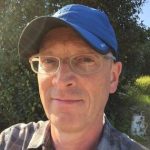
Marc De Batist is Full Professor in Marine and Sedimentary Geology at Ghent University, where he is also Head of the Department of Geology and of the Renard Centre of Marine Geology. Over the years, in his research he has addressed topics like Cenozoic and Quaternary geology of the North Sea, marine geophysics, seismic stratigraphy of continental margins and of large rift lakes, polygonal fault systems, gas hydrates and gas seeps, underwater mass wasting processes, limnogeology, paleoclimatology, paleoseismology, geohazards, etc. He is author of nearly 200 articles (H-index 44), and was/is supervisor of 28 PhD researchers and 80 MSc students. He has been involved in 18 EU-funded projects, of which 6 as coordinator. He is currently also President of EGU’s Division on Stratigraphy, Sedimentology and Paleontology.
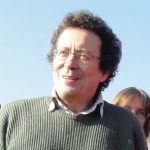
Michiel Dusar obtained his PhD in Geology at the KU Leuven. After starting his career in southern Africa in diamond exploration, he was hired by the Geological Survey of Belgium and specialised in geo-energy, regional geology and geological heritage, while also taking up a teaching position in the Univ Hasselt Faculty of Architecture & Arts. He later became Director of the Survey. Ever since he officially retired, Michiel remains very active as a scientific collaborator. In this voluntary engagement, he offers extensive expertise to both his direct colleagues and external project partners.

Dr. Slavko Solar is a Mineral Resource Geologist who worked as an exploration geologist, Head of Department, consultant, policy adviser for the Slovenian government and industry on minerals, resource management and sustainability, besides he was coordinator of many projects and the Mining Public Service, all at the Geological Survey of Slovenia. In last 10 years, before becoming Economic Affairs Officer at UNECE in July 2021, he was a Secretary General of EuroGeoSurveys, a Senior Scientific Officer at DG Joint Research Centre (JRC), and a Seconded National Expert to DG GROW. He has an extensive list of publications related to his expertise published in journals and conference proceedings.
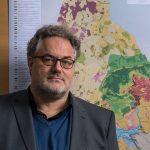
Michiel J. van der Meulen studied geology at Utrecht University. After obtaining his PhD in 1999, he started working on mineral resources and supplies at Rijkswaterstaat (directorate-general of Public Works and Water Management). In 2003, Michiel joined the Geological Survey of the Netherlands, part of TNO, where he continued working on minerals and the relationship between land use and geology. Since 2006, he held various leadership positions, and his scope and responsibilities have broadened to the delivery of geological information in general. Michiel is firmly committed to advance our understanding of geology for the public good.
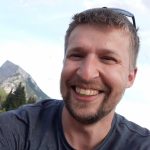
Koen Van Noten is a structural and earthquake geologist working at the Seismology-Gravimetry section of the Royal Observatory of Belgium. His research focuses on crustal deformation, linking earthquakes and inherited tectonic structures using geophysical techniques, analysing earthquake site effects, and studying the relation between the distribution of felt earthquake reports and the local geology. Koen is a devoted student coach and an enthusiast Earth Science communicator. Personal URL: https://sites.google.com/site/koenvannoten/
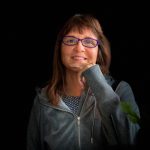
Dr. Ingrid Maria Verstraeten currently is the Senior Regional Science Advisor/Chief of USGS Programs with Europe, Russia, Central Asia, Circum Arctic, and International Organizations, Office of the Director, International Programs, U.S. Geological Survey. She participated in numerous high level bilateral S&T meetings led by State Department in her region. She is the co-founder of the Central Asia and Afghanistan Women and Water Association in 2016. During her tenure at USGS, she also has focused on the implementation of water resources and environmental projects in Afghanistan, Pakistan, Madagascar, Cape Verde, Uzbekistan and worked on transboundary groundwater resources efforts in the Americas. She has encouraged US-EU cooperation with European Geological Surveys and universities, Central Asia cooperation focused on water resources, US-Uzbekistan cooperation in energy, critical mineral and water resources, US-Ukraine cooperation in geological sciences, Pakistan-Afghanistan cooperation in water quality, and Arctic cooperation in geography and minerals. Her degrees are in hydrogeology, geochemistry, geology, and soil science obtained from the University of Nebraska (PhD and MS) and the Catholic University of Leuven (Licenciaat and Kandidatuur), Belgium.
Be aware that the fieldtrips have limited places, register soon!
Meeting places and times:
Brussels – GSB at 8:00 am (map)
Han-sur-Lesse – Place Théo Lannoy at 9:30 am (map)
| 09:30 – 10:30 | The UNESCO Global Geopark Famenne-Ardenne and walk to the Lesse spring at the ‘Trou de Han’ through the Han-sur-Lesse village |
| 10:30 – 12:00 | Visit of the Han-sur-Lesse cave, a typical example of a meander cut-off by one of the important European underground rivers |
| 12:00 – 14:00 | Lunch at the Pavillon (Han-sur-Lesse) small hot meal and drinks (20€) |
| 14:00 – 15:00 | Gallery of Ave-et-Auffe – ancient lead mine – presentation of the H2020 European Project Robominers – Resilient Bio-inspired Modular Robotic Miners |
| 15:00 – 16:20 | Resteigne Quarry – A Givetian outcrop telling the geological evolution of the region |
| 16:20 – 17:00 | ‘Rocher à Pic’ Viewpoint on the geomorphology of the region or Nou-Maulin cave entrance, starting point of the Geopark and climate impact (depending on weather and time) |
| 17:00 | End of the field trip, travel back to GSB in Brussels (estimated arrival time: 18:30) |
Meeting places and times:
Brussels – GSB at 8:00 am (map)
Rue Profondrieux – Tellier des Prés quarry (Ecaussines) at 9:30 am (map)
| 09:30 – 12:00 | The bluestone (Pierre Bleue or Petit Granit) quarry nearby Soignies – geological background, explanations on the blue stone formation, their diagenetic evolution, the problems from karstic features |
| 12:00 – 14:00 | Lunch at the quarry with different vegetarian, meats option or eventually a salad (gluten-free) (20€) |
| 14:00 – 16:30 | The underground Mazy quarry nearby Namur – A Frasnian underground active exploitation quarry for black marble (origin, sedimentary evaluation of the black marble, room and pillar exploitation) |
| 16:30 – 17:00 | If time left: Dinantian rocks along the Meuse River. Viewpoints (Dinantian dolomite, karstic aspect affecting the Visean Grande Brèche (breccia) covered by Namurian shales) |
| 17:00 | End of the field trip, travel back to GSB in Brussels (estimated arrival time: 18:30) |